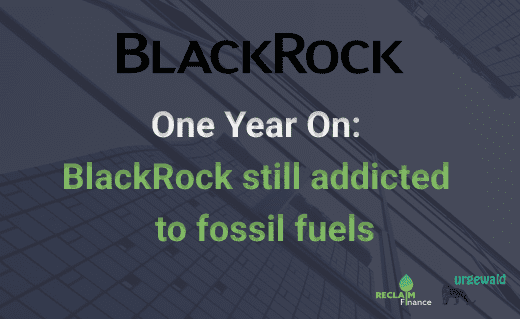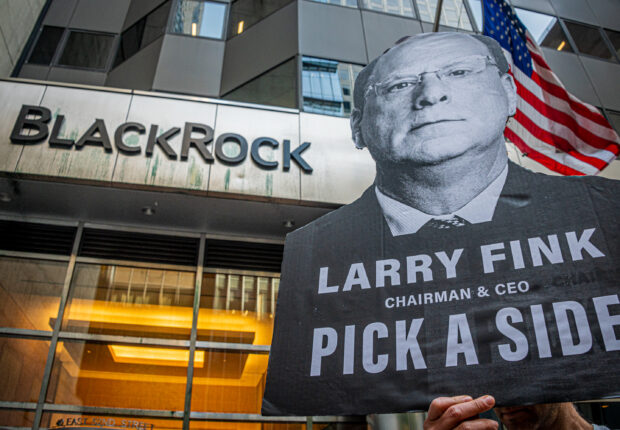New research has revealed that BlackRock remains a massive investor in coal companies, even in those with expansion plans related to coal. The analysis unveils huge gaps in BlackRock’s policy, both in its coal policy and in the complete absence of a policy on other fossil fuels.

Our partners Reclaim Finance and Urgewald today released a new report exposing BlackRock’s continued, high level of support for the coal industry. This comes a year after CEO Larry Fink committed BlackRock, the largest investor in the world, to investing sustainably, including a promise to exit thermal coal.
Instead, research on BlackRock’s holdings has revealed that BlackRock remains a massive investor in coal companies, even in those with expansion plans related to coal. Our analysis unveils huge gaps in BlackRock’s policy, both in its coal policy and in the complete absence of a policy on other fossil fuels.
Gaping Holes in Coal Policy
Shockingly, the research found that $85bn of assets managed by BlackRock are still invested in coal companies , including the likes of Glencore and RWE. Even worse, investments in coal companies with expansion plans, such as Sumitomo or KEPCO, total over $24bn, in an unequivocal breach of the decisive climate action required by the Paris Agreement.
This failure is compounded by gaping holes in BlackRock’s policy, which affects just 17% of the entire coal industry, meaning that BlackRock could still invest in 333 publicly listed companies along the coal value chain. What’s more, BlackRock’s limited policy only applies to its actively-managed portfolio, leaving aside the majority of its assets which are invested via passive funds, meaning that BlackRock can still invest in every single coal company in the world via its index funds.
Too little, too slow
BlackRock’s warm words on climate haven’t led to progress elsewhere, either. Its innovations on new sustainable options for its clients may be welcome, but they don’t make up for the havoc BlackRock’s coal financing continues to wreak on the planet. For example, assets in “sustainable” ETFs currently account for a tiny fraction of all iShares ETFs, at around 3% of iShares total assets under management.
Similarly lackluster is BlackRock’s engagement strategy, which has signally failed to force climate action over the past year. Without a clear divestment stick, BlackRock’s engagement carrot lacks power. It is also contradicted by BlackRock voting against 88% of climate resolutions in 2020, a worse voting record than 2019.
Taking stock
One year on, Larry Fink’s commitment to sustainability is looking increasingly hollow. If it truly wants to be seen as a climate leader, rather than part of the problem, BlackRock needs to take decisive and swift action to expand its coal policy and follow through on its commitment to climate action.
With Larry Fink’s letter to its clients coming soon, BlackRock has the chance to tackle its fossil fuel addiction. Moving seriously on coal is the first step towards alignment to a 1.5°C scenario. BlackRock must:
- Commit to excluding all companies that generate more than 20% of their revenues or electricity production from coal;
- Commit to excluding all companies with expansion plans in the coal sector;
- Commit to excluding all companies producing more than 10 million tons of coal per year and holding more than 5 GW of coal capacity;
- Call on companies to adopt asset-based closure plans to phase-out coal by 2030 in European and OECD countries and by 2040 worldwide at the latest;
- Apply the exclusion policy to all assets under management including passively managed assets.
After the hottest year on record, there can be no more excuses for poor results. It’s time for BlackRock to step up.
You can read further coverage in The Guardian, or read the full report here.

